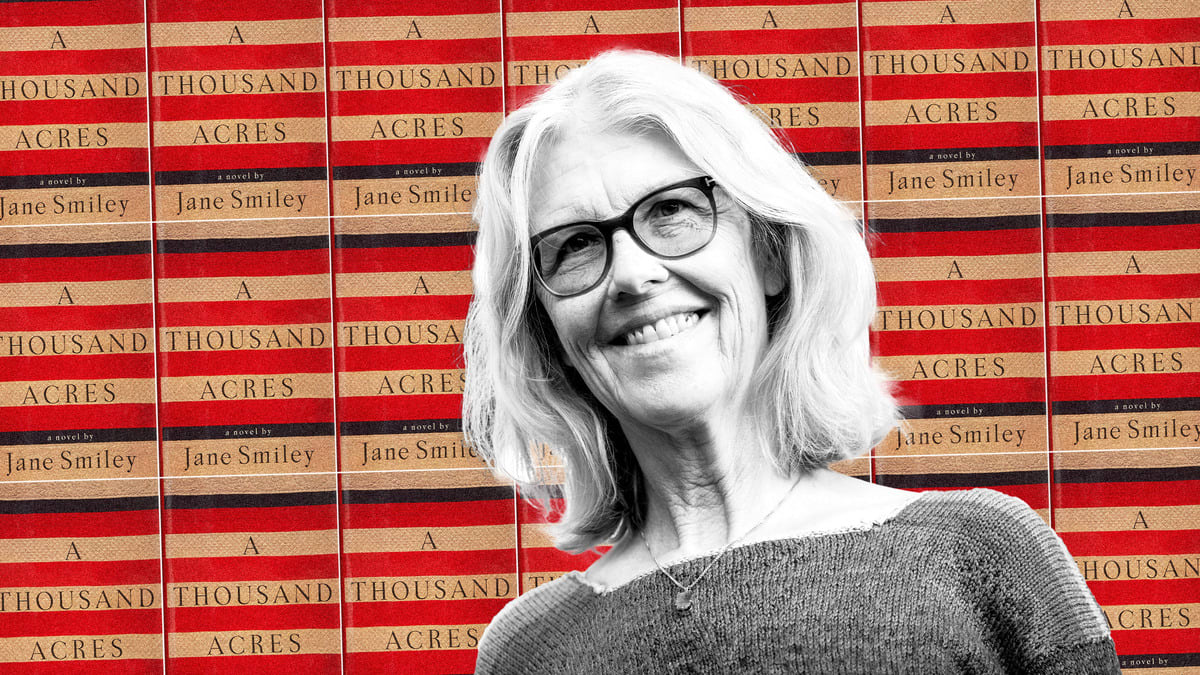I have to admit that a few days ago, when I first saw the list of books banned in schools in Kuna, Idaho, I was a little surprised, given it was published back in 1991. Even so, I was thrilled to be number 1—Perhaps a revival was coming my way! Then I realized that my book, A Thousand Acres, was at the top because the list was alphabetical, not in order of shockingness. But it is a good list to be on—Toni Morrison! Judy Blume! Thank you, banners!
Most authors know that banning books can increase sales, so here’s hoping. As far as I know, the only other time A Thousand Acres was banned was in Texas, not long after publication. The reason given was due to the sex and violence in the book. Hmmm. Maybe the publisher should have written on the title page “This novel is rated R. Those under 17, must be read to by a parent.”
Most parents also know that once your child is a teenager, as soon as you tell him or her not to do something, they go straight outside and do it. A neighbor who lives up the hill behind our house recalled the times he saw one of our sons sitting on the roof and smoking (well, at least our son wasn’t contaminating the indoor air—and he doesn’t smoke anymore). So with any luck a lot of teenagers in Kuna will read the list, scratch their heads, and hitchhike to Boise to get a copy.
I had thought about writing a modern retelling of King Lear for a while before I actually did it, but then I was driving through northern Iowa, from Minneapolis, and I looked around and said, “Oh, here’s where I should set that Lear book!” There was plenty of farm land for a father and his three daughters to fight over.
When I wrote A Thousand Acres, my goal was not to disrespect Mr. Shakespeare (or Uncle Bill, as I call him) but to give King Lear’s daughters Goneril and Regan a voice. So, is the idea of women telling their own stories and having their own opinions a problem in Kuna?
Oddly enough, my grandmother grew up in Idaho, and she loved it—especially the small town of Hailey, which is about 100 miles east of Kuna. My grandmother went to Albion State Teachers College, and taught elementary school in Shoshone, where she met my grandfather. She never had any problems expressing herself, and never stopped any of her children and grandchildren from reading, writing, and having their own opinions. I think she would be embarrassed at the idea of book banning in her much-beloved state.
A Thousand Acres is not a YA novel, but if you have to read Hamlet or King Lear in high school (and I did), then you know that even if your own life is safe and pleasant, the lives of many people are not—“To be or not to be” seems to be a question for a lot of teenagers these days. So are the folks in Kuna going to ban Uncle Bill, too?
What you learn from literature is not despair but how despair feels and works, how to understand that problems and moods that you are having are not yours alone—other people have the same problems (and animals, too—why aren’t they banning Black Beauty?)
The two main characters of A Thousand Acres, Ginny and Rose, have different responses to the trauma they’ve endured—one is vengeful and the other one is thoughtful and, in some sense, forgiving. Which one is being banned?
Oh, well. I guess that the banners in Kuna want their teens to go back to reading the Bible. There’s nothing like war, human sacrifice, murder, rape, and genocide to perk a kid up. Not to mention animal sacrifice—no one in the Bible seems to have been a vegan (Let’s not forget Hebrews 9:22—“without the shedding of blood there is no forgiveness”.
Maybe the next book banned in Kuna will be Peter Singer’s Animal Liberation: The Definitive Classic of the Animal Movement. Oh, right—wildlife hunters and gun owners are 61 percent of the population (that’s 1.1 million gun owners). Well, I hope they ban it, because then maybe those teens will read it.
Perhaps the book I would ban is the Bible, but why bother? All the books floating around in the world end up in the hands of people who read them, do their best to understand them, and make up their own minds. Everyone should have the freedom to do that.



